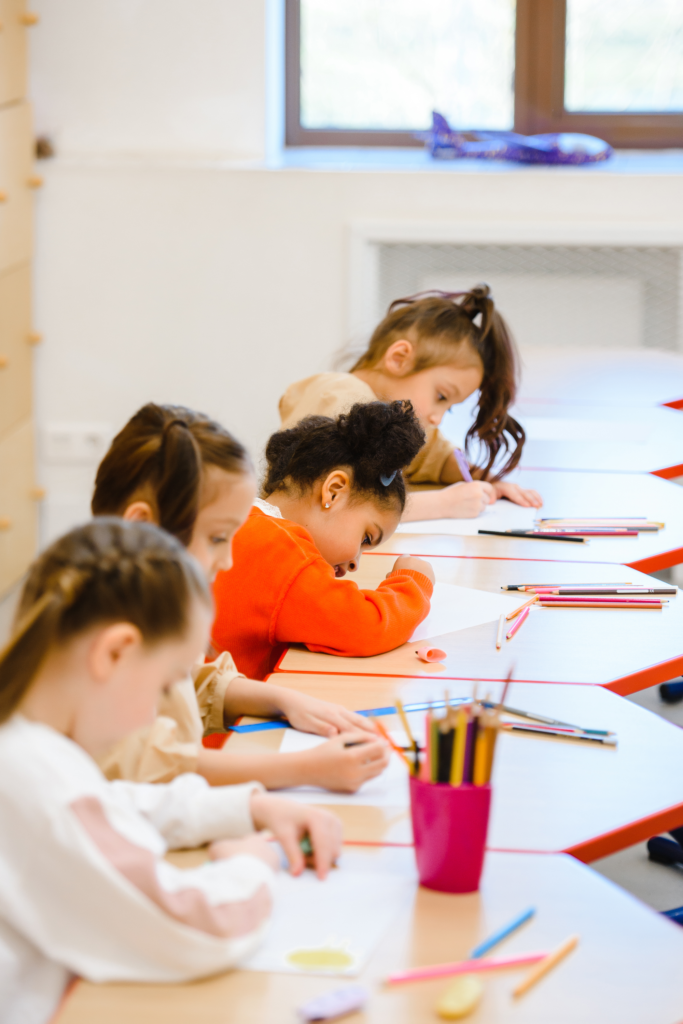Polish educational institutions, increasingly richer in terms of children’s citizenship, face numerous challenges related to cultural integration. In this article we look at the national diversity of students and the role of intercultural assistants. We point out the requirements and practice of employing assistants in schools and their tasks. Finally, we provide some useful materials for people interested in and wanting to develop their competences in contact with children and young people from different cultures.

Diversity in Polish schools
More and more children with different citizenships take their first steps in Polish schools. Apart from Ukrainians, the largest group are students from Belarus, Russia, Vietnam, Bulgaria, Georgia, India, Kazakhstan, Germany and Moldova. Data from the Ministry of Education indicate the Lower Silesian, Lubuskie, West Pomeranian, Masovian and Pomeranian voivodeships as leaders in terms of the number of children studying with non-Polish passports. It is estimated that they constitute 5.4–6.8% of all students [1].
According to a survey conducted by “Dziennik Gazeta Prawna” [2] among local governments, the number of Ukrainian students has stabilized, but there is a noticeable increase in the number of children and youth from Belarus. Some primary schools report that the percentage of students with other nationalities is as high as 20%.
Also, the recently published CEO report “Refugee students in Polish schools” shows that schools in Poland experience noticeable diversity in terms of language, culture and education. The authors of the report point out that due to the above-mentioned differences, students’ understanding of instructions may differ. The lack of conscious cultural integration in such an environment may lead to a situation in which students function side by side rather than together [3].
More about the CEO report: “Refugee students in Polish schools” – summary and conclusions
The report highlighted the problem of the so-called foreign units in schools, i.e. classes consisting only of Ukrainian students, which may affect social segregation. Educators, often in the absence of a cultural assistant employed by the school, must respond to the growing anxiety and fear among students related to the rapid increase in society’s diversity. As a result, you may notice cases of discriminatory or aggressive behavior in the school environment.
Assistants and cultural assistants in Polish schools: legal requirements
Intercultural assistant is a term referring both to people employed by the school management as a teacher’s assistant, in accordance with educational regulations, and to individuals employed in educational institutions by non-governmental organizations. For example, in Warsaw, the work of 80 assistants for the 2023/2024 school year is financed by the Polish Center for International Aid. At the same time, according to data from the Gdynia City Hall, there are 16 assistants working in 19 institutions in the city [4].

The legal side of employing intercultural assistants is regulated by educational regulations. Pursuant to the Act of 7 September 1991 on the Education System, Article 94a, Section 4a, and the Education Law, Chapter 7, Article 165, Sections 8 and 9, persons who are not Polish citizens and are subject to compulsory schooling are entitled to support in the form of an intercultural assistant employed by the school principal. This assistance is provided for a period of up to 12 months, and employment funds are transferred at the request of the school management by the governing body.
The only official qualification requirement for intercultural assistants is the ability to speak the language of the student’s country of origin. It is not necessary to have higher education or specialized pedagogical preparation. The regulations also do not specify the scope of work of assistants or the minimum number of students that would justify their employment. These decisions are left to the discretion of the school principal.
Tasks of cultural assistants
The increasing diversity and the lack of appropriate legal regulations pose a number of challenges to Polish schools. Intercultural assistance, implemented on a larger scale, would be the answer. Their presence not only facilitates communication and helps with translation, but also supports the child in the process of adapting to the new environment. Moreover, these assistants act as mediators between the school and the parents of migrant students, also supporting in resolving conflicts resulting from cultural differences.
As described by the Foundation for Social Diversity, the tasks of a person acting as an intercultural assistant include:
- providing support to children of different origins in the learning process and integration with the local school community,
- assistance in translating between Polish and the native language of the student and his family, both during school classes and during meetings with parents, school psychologist/pedagogist, management or teaching staff,
- acting as an intermediary in communication between the school and students’ parents or legal guardians.
- conducting mediation in the event of cultural, national, racial, ethnic or religious conflicts [5].
In practice, assistants are sometimes the only people prepared to undertake crisis interventions. It is worth emphasizing that effective cooperation between the school and intercultural assistants requires clearly defined rules, both in terms of the scope of their activities and the conditions of cooperation. Monitoring and evaluation of cooperation and the development of assistants’ competences are crucial for the effective integration of migrant children in Polish educational institutions.
Understanding culture as a key to integration: challenges for schools and teachers
Experts emphasize that schools must adapt to the new reality, both at the system and class level. Adaptation activities should include not only providing access to intercultural assistants, but also standardizing the teaching of Polish as a foreign language and rethinking assessment systems. Linguistically, culturally, and educationally diverse classrooms create challenges by requiring teachers to develop multicultural competencies. The presence of an intercultural assistant at school would be invaluable support in this respect.
A cultural assistant serves as a cultural translator, helping both refugees and the host community understand cultural differences. A key aspect of this work is a deep understanding of cultural diversity and the ability to support the integration process through respect and understanding of other people’s culture.
Useful materials

1. The Migration Academy’s “Cultural Assistance” training module offers preparation in the field of intercultural assistantship and crisis interventions. “This module discusses key aspects of a caseworker’s work and the complicated migration process in the context of various groups of migrants.” 13 lectures lasting 5 hours are available for free to registered users.
2. Materials prepared by the Mikołaj Rej Foundation focus on working with students with migration experience. This project aims to equip teachers, pedagogues and management staff with tools enabling effective work with refugee children. The materials are complementary to school textbooks, especially in the field of teaching Polish as the language of school education. The online version includes a “Teacher’s Guide” and materials for first, second and third grades – tips, lesson plans and practical exercises.
3. The publication “Intercultural assistant at school – experiences, conclusions, recommendations” published by the Foundation for Social Diversity (FRS) contains a collection of practical, good examples from the experience of schools and a description of recommendations for the assistant’s work. It is also worth taking a look at other materials recommended by FRS.
4. The document “Good practice from Krakow, or how to organize the work of intercultural assistants in our schools” created by SOS for Education presents effective solutions for the work of intercultural assistants in Krakow, taking into account the specificity of the city as one of the most diverse in terms of nationalities.
5. The webinar “Zone of Good Emotions: Intercultural Assistant – the missing link in multicultural education” by the Fine Foundation is a recording of a lecture with an expert in the education of students with migration experience. It is intended for teachers, educators and parents to support them in their work in situations of crisis and increased tension.
